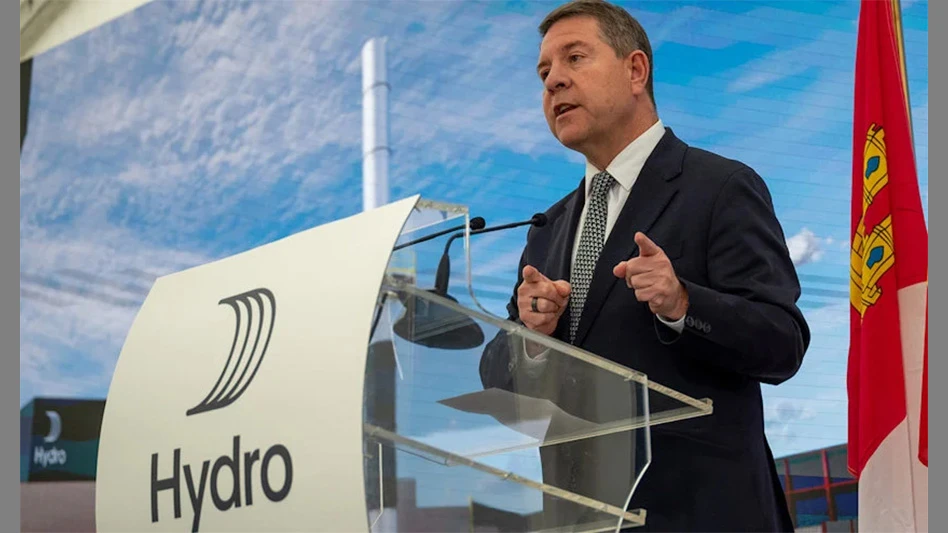A law recently passed in the United Kingdom that called for the banning of the use of cash to pay for scrap metals brought to scrap metal yards in the U.K. and Wales is now in effect. The decision to ban the payment of scrap metal by cash was prompted by rampant theft of nonferrous metals from throughout the country.
Penalties for those breaking the law have also been increased in amendments to the Legal Aid, Sentencing and Punishment of Offenders Bill To view the bill, click here.
According to the BBC, the U.K.’s Association of Chief Police Officers estimates that metal theft costs the U.K. economy £770 million per year.
The U.K.’s Home Office says the measures are signed to eliminate the illegal metal industry, which they estimate cost the country at least £220 million a year.
Starting Dec. 3, 2012, the changes to the business include the following:
- Remove the 'no questions asked' cash payments
- Increase financial penalties – illegal traders will now face fines of up to £5,000
- Give police new powers of entry to tackle illegal trading in metal yard
Crime Prevention Minister Jeremy Browne said in a statement, “Metal theft affects everyone and the impact on our communities is immense. From loss of power to homes and disruption in rail services to desecrated war memorials, all our lives are blighted by this national problem. This is why the government is acting to tackle it. These measures are designed to reform the industry to support legitimate dealers and tighten the net around those who flout the rules.”
In conjunction with the legislation, the law is supported by stronger law enforcement activity and £5 million which the government has allocated to a dedicated metal theft taskforce.
Meanwhile, The British Metals Recycling Association has been supporting the Scrap Metal Dealers Bill, saying a cash ban alone will not reduce metal theft.
In a statement following the implementation of the bill, Ian Hetherington, director general of the British Metals Recycling Association (BMRA), said “Banning cash alone will have a devastating effect on legitimate small traders whilst having little effect on the rate of metal theft, unless there is a robust regulatory framework to back it up. The Scrap Metal Dealers Bill, which is currently being considered by the House of Lords, aims to improve regulation and enforcement to rid the industry of illegal and unscrupulous dealers.”
The government is also working with Richard Ottaway MP to ensure his Scrap Metal Dealers Bill delivers a stronger and more effective licensing regime for the scrap metal industry. The bill had a successful third reading in November, and the U.K. government hopes to have the law in place by the first half of 2013.
According to Ottaway, the Scrap Metal Dealers Bill proposes a sizable reform of the scrap metal industry.
Key features of the bill include:
- Any individual or business that carries on business as a scrap metal dealer must complete an enhanced application process to get a license – local authorities can refuse unsuitable applicants and have the power to revoke licenses;
- All sellers of metal must provide verifiable ID at point of sale which is recorded and retained by the dealer;
- The cashless offence will apply to all scrap metal dealers without exception including ‘mobile/itinerant collectors’ who conduct house to house collections;
- Police will have the power by court order to close unlicensed premises;
- The worst breaches of the act including trading in cash, failing to keep an accurate record of deals and trading without a license, would face unlimited fines;
- Creation of a single national publicly available register of all scrap metal dealers;
- Definition of scrap metal dealer to include motor salvage operators, thereby bringing that licensing scheme within one new scrap metal licensing regime; and
- Compulsory vehicle and site badging.
Latest from Recycling Today
- Toppoint Holdings expands chassis fleet
- Lego creates miniature tire recycling market
- Lux Research webinar examines chemical recycling timetables
- Plastics producer tracks pulse of wire recycling market
- Republic Services, Blue Polymers open Indianapolis recycling complex
- Altilium produces EV battery cells using recycled materials
- Brightmark enters subsidiaries of Indiana recycling facility into Chapter 11
- Freepoint Eco-Systems receives $50M loan for plastics recycling facility






